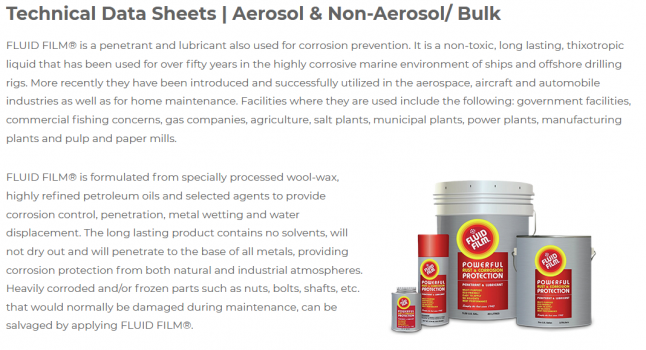A note on popular "food grade" lubes:
Froglube specifically is based on an old rollercoaster "tracklube," and it's almost certainly just coconut oil with a wintergreen scent additive.
See analysis here. See
one lube "manufacturer" suing a blogger and chemist over the truth about their soybean-oil-based gun lube here.
I point this out because I think more people in the gun/knife community should be skeptical of the "specialized" claims of lubes. It's not that I think any of the top-dollar lubes won't do their jobs, just that they aren't doing the job any better than a similar oil (similar weight, specifically) that's easy to find at much lower prices. It's not a bad product, but it is deceptive marketing.
The food grade thing often just means there's no solvent carrier. Teflon and graphite lubes, for example, usually come in a solvent that will make you sick if you get any in your system, but the solvent is designed to evaporate in less than a minute. Teflon is one of the least-reactive compounds out there, and graphite is perfectly safe, but if you inhale or swallow the carrier solvent you'll have a bad time.




